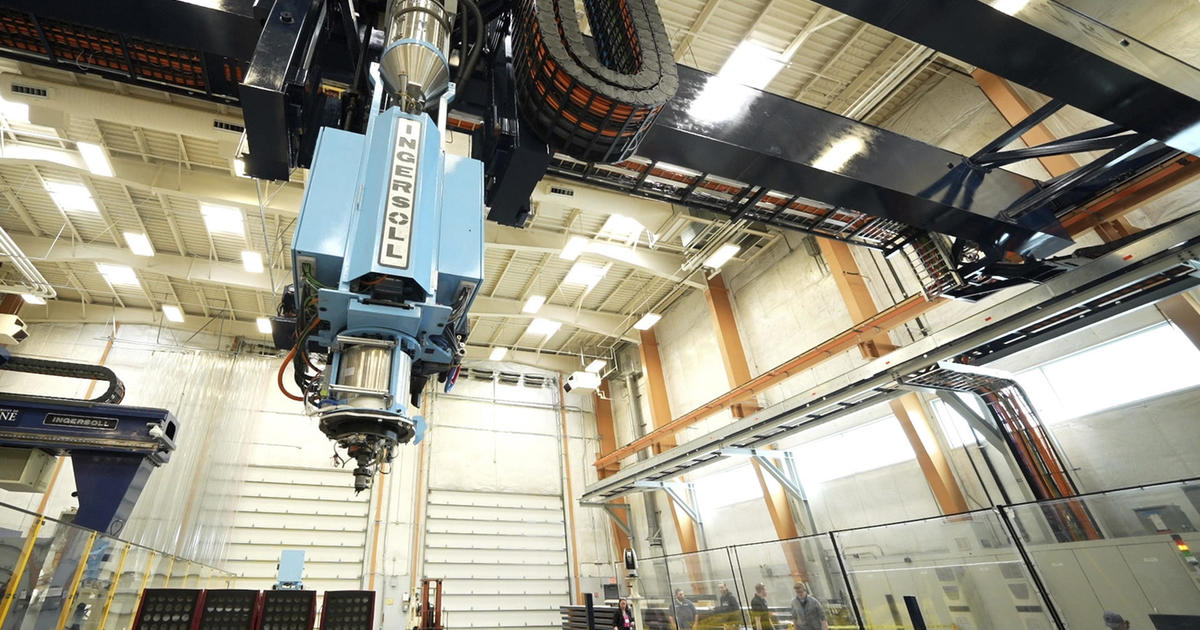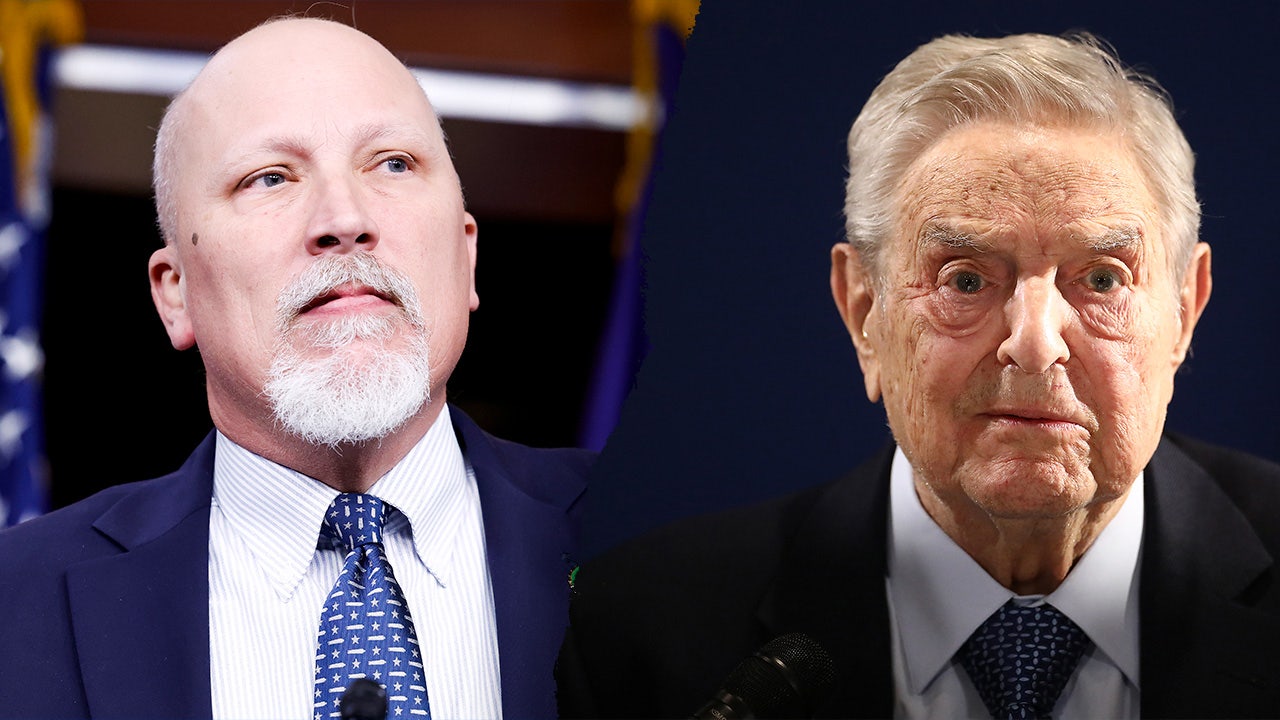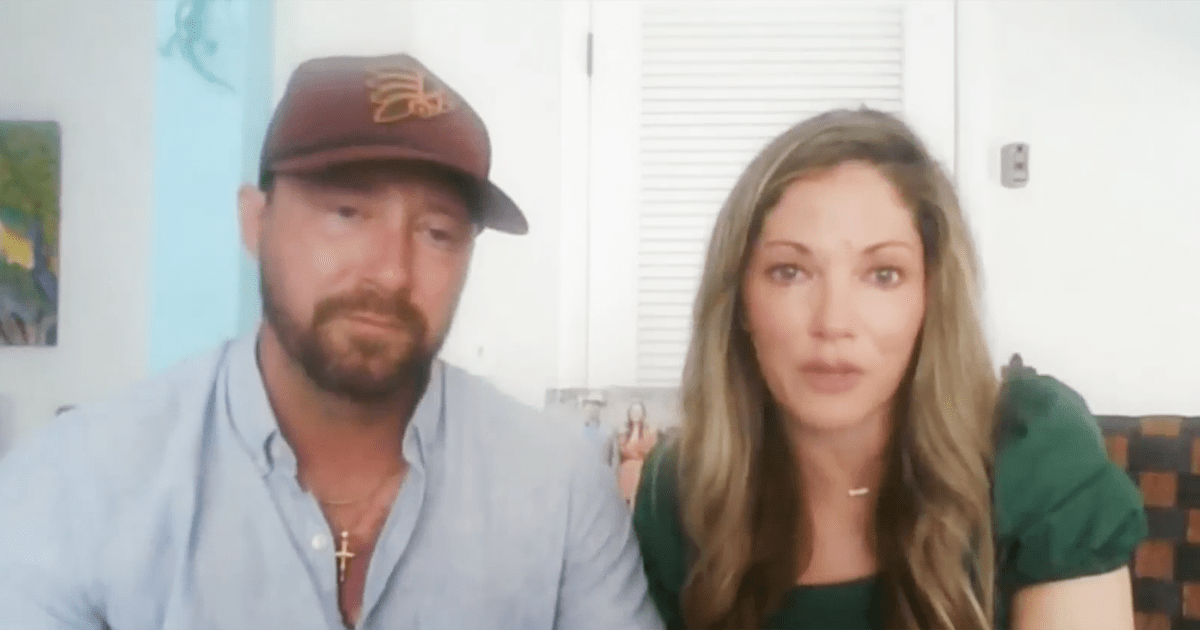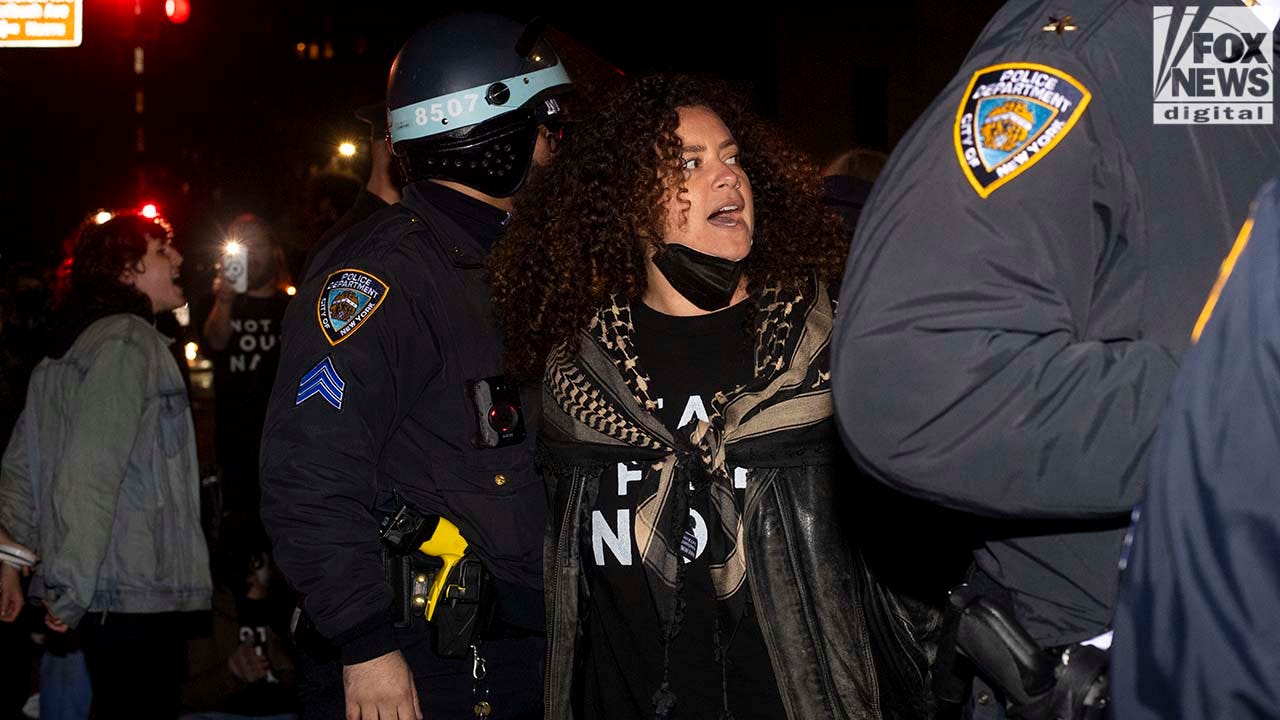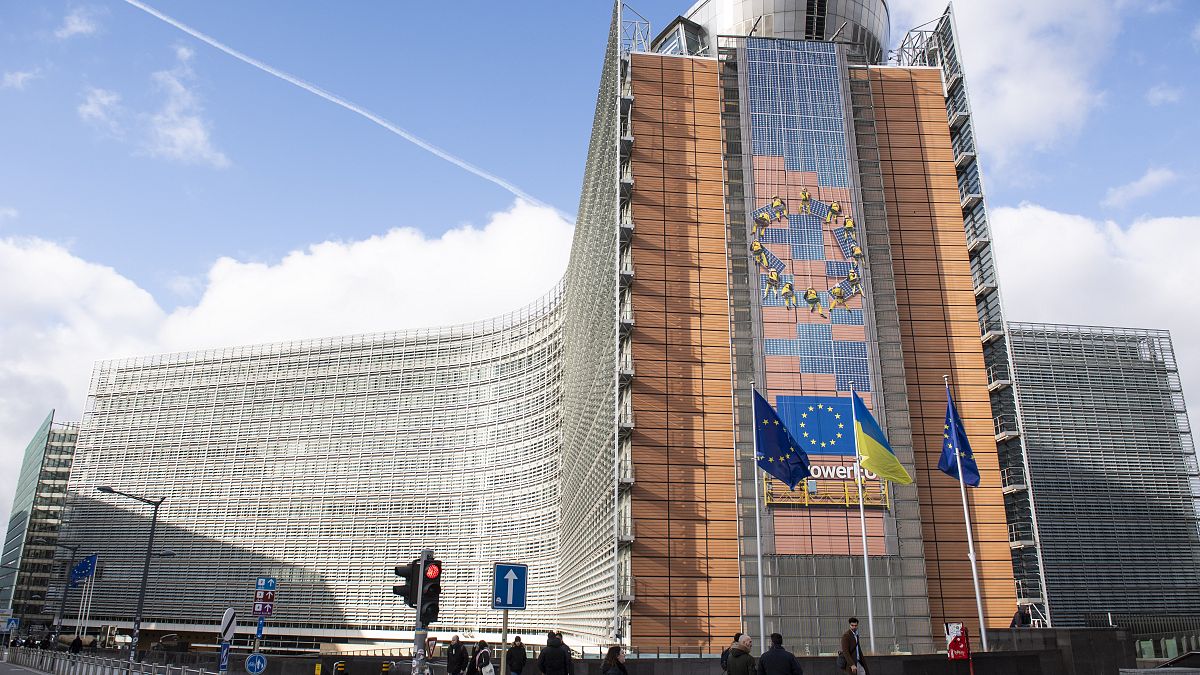World
US ally reportedly calls Biden foreign policy in Kosovo ‘naive’ amid rising tensions with Serbia
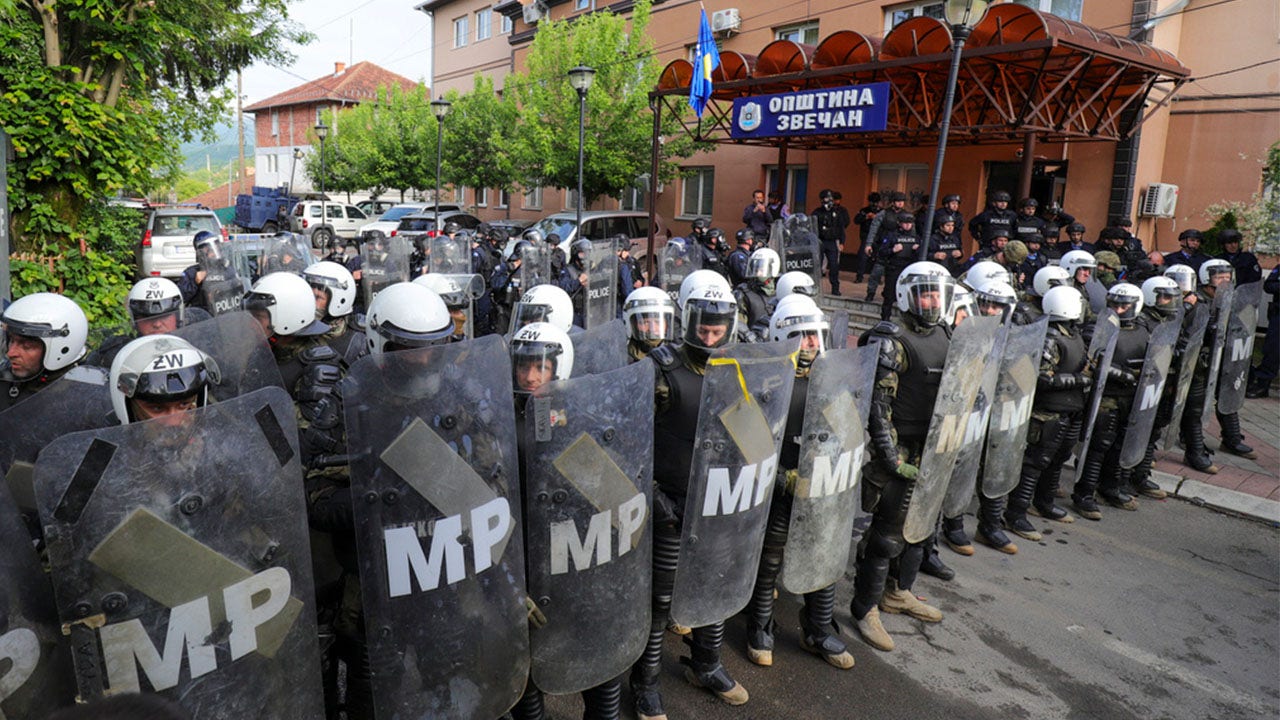
U.S. Secretary of State Antony Blinken faced criticism from a close ally as ethnic tensions have once again flared in the Balkans.
Kosovo Prime Minister Albin Kurti took a shot at Blinken, who had criticized Kosovo’s government for “actions it took against the advice of the United States and Kosovo’s European partners,” according to a statement from Blinken.
Kurti didn’t shy away, telling The Guardian newspaper in an interview last week, “I think it’s not just unfair and wrong and hurtful but at the same time very naive.” He also said the comments were appeasing Serbian President Aleksandar Vucic.
SERBIA, CAUGHT BETWEEN EUROPE AND RUSSIA, COULD MOVE ONE STEP CLOSER TO NORMALIZING RELATIONS WITH KOSOVO
NATO Kosovo Force soldiers detain a protester at the entrance of the municipality office in the town of Zvecan, Kosovo, on May 29, 2023. (Reuters/Laura Hasani)
Kurti ignored a demand from Blinken to reverse course and refrain from actions that would inflame tensions. The prime minister said Kosovo police will stay in the northern Serb region, a move that the U.S. believes will not help defuse the situation. In response, the U.S. announced that it was canceling Kosovo’s participation in upcoming NATO military exercises.
Asked for comment on Kurti’s criticism, a State Department spokesperson referred Fox News Digital to Blinken’s comments in Norway on Thursday in which he said, “The escalation there and the actions taken there move both Kosovo and Serbia in the wrong direction because the answer that we’re looking for is de-escalation, avoiding any unilateral actions, and returning to this normalization process and the EU-led effort that is what promises both of them a future of integration in the Euro-Atlantic community,” Blinken said during his press conference in Oslo.
Blinken said the U.S. will oppose any actions that either country takes that would make EU integration a more distant prospect.
“We’ve been very clear in our concerns about some of the recent actions that were taken. We’ve said that directly to the leaders involved, including Prime Minister Kurti. And we’re looking for both to act responsibly going forward,” Blinken added.
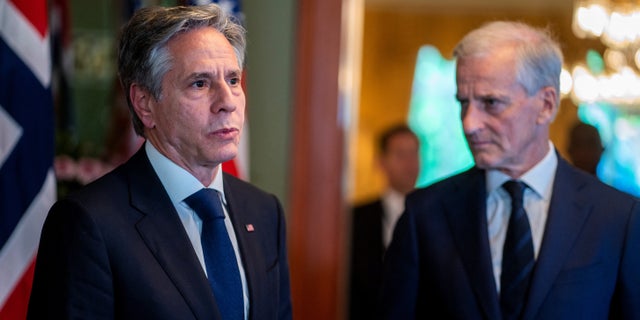
Secretary of State Antony Blinken, left, meets with Norwegian Prime Minister Jonas Gahr Store ahead of a NATO meeting in Oslo, Norway, on May 31, 2023. (NTB/Heiko Junge via Reuters)
French President Emmanuel Macron also waded in and directly blamed Kurti and Kosovo for the confrontation. With its rebuke of ally Kurti, the U.S. has been accused by some in diplomatic circles of taking the side of Vucic, who has been a close ally of Russian President Vladimir Putin.
HISTORICAL RUSSIAN ALLY SNUBS PUTIN IN GROWING SHIFT TO EUROPEAN UNION
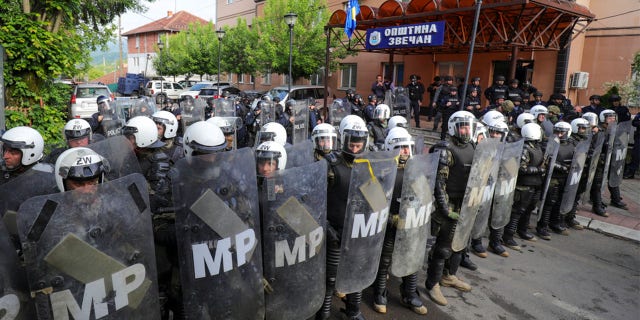
Polish soldiers, part of the peacekeeping mission in Kosovo, and Kosovo Force guard a municipal building in the town of Zvecan on May 29, 2023. (AP Photo/Bojan Slavkovic)
“I do not think that the latest statements from the United States or France necessarily mean that they are siding with Vucic as much as they are merely critical of the Kurti government’s decision to send the mayors to their offices and insist that they have legitimacy to govern, knowing all too well that this is likely to spark tensions,” Helena Ivanov, associate fellow at the Henry Jackson Society, told Fox News Digital.
“Generally, I think that the West just wants things to stay calm and will criticize any moves that are likely to spark tensions – thus the critical tone towards Kosovo,” Ivanov added.
RUSSIAN INFLUENCE PEDDLING ADDS TO FEARS AFTER ELECTION OF UNTESTED PRESIDENT IN EUROPEAN NATION
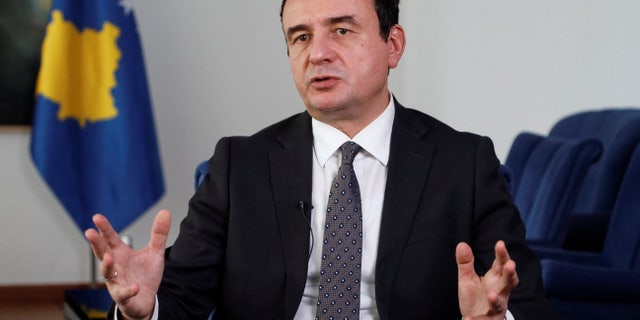
Kosovo Prime Minister Albin Kurti speaks during an interview with Reuters at his office in Pristina, Kosovo, on Aug. 10, 2022. (Reuters/Fedja Grulovic)
Facing mounting pressure from the Europeans, the presidents of Serbia and Kosovo met in Moldova to discuss ways of lowering tensions on Thursday. Reuters reported that following her meeting with Vucic, Kosovo President Vjosa Osmani accused him of “whining and complaining and … not telling the truth.”
Osmani, however, did offer some hope by saying that Kosovo could hold new elections in the north with Serb participation if they were triggered legally. Vucic left without making comments to the media, according to Reuters.
Violence erupted after ethnic Albanian mayors took office in the north of Kosovo, a predominantly Serb majority enclave of Kosovo, following April elections that were boycotted by Serbian political parties and their supporters. The U.S. urged Kurti not to hold the elections, fearing the outcome would be illegitimate in the eyes of local Serbs. The boycott resulted in an extremely low turnout of 3.5%, leading many in the West to claim the elections were indeed illegitimate.
Serbs attempted to block the ethnic Albanian mayors from entering their offices, and Kosovar police responded by firing tear gas, which escalated tensions. More violence ensued when Serbs clashed with Kosovo police and NATO peacekeeping troops. Serbia, for its part, responded by sending troops to the border with Kosovo and put its armed forces on high alert.
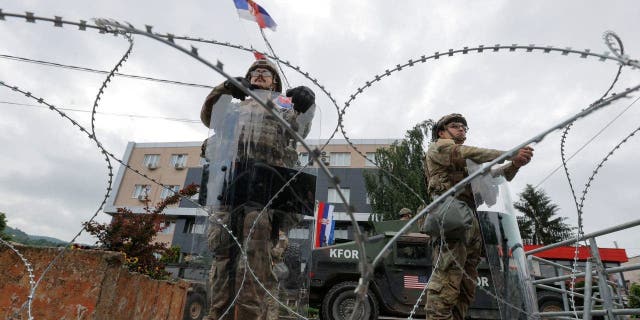
U.S. KFOR soldiers stand guard in front of the municipality office in the town of Leposavic, Kosovo, on May 29, 2023. (Reuters/Valdrin Xhemaj)
“NATO strongly condemns the unprovoked attacks against KFOR troops in northern Kosovo, which have led to a number of them being injured. Such attacks are totally unacceptable,” reads a statement from a NATO spokesperson.
Eleven Italian soldiers and 19 Hungarian troops sustained multiple injuries, “including fractures and burns from improvised explosive incendiary devices,” and three Hungarian soldiers were injured from firearms, according to a Kosovo Force (KFOR) statement.
Kurti also blamed Vucic for stoking tensions and inflaming what he called a “fascist mob” that attacked NATO forces.
US ACCUSED OF RETREATING FROM NATO ALLY ALBANIA AS RUSSIA LOOKS TO GROW REGIONAL INFLUENCE
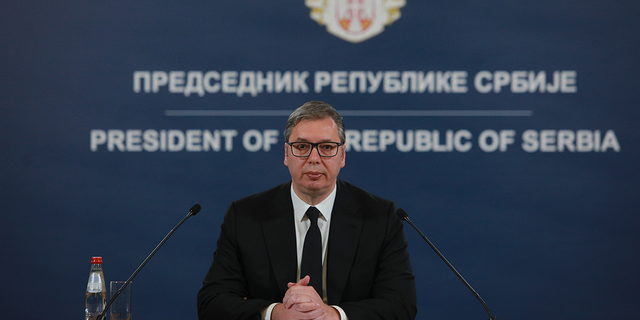
Serbian President Aleksandar Vucic holds a news conference on the school shooting that claimed the lives of at least nine people in Belgrade, Serbia, on May 3, 2023. (Milos Miskov/Anadolu Agency via Getty Images)
While 92% of Kosovo is ethnic Albanian, Serbs in the north are still loyal to Belgrade and refuse to accept Kosovo’s 2008 unilateral declaration of independence.
Conflict between Serbia and Kosovo following the 1999 war is unresolved and is a roadblock to their further European integration. Kosovo was a former province of Serbia and was once integrated within the nation of Yugoslavia. NATO led a bombing campaign against Yugoslavia in 1999, which comprised Serbia and Montenegro, to defend Kosovo’s ethnic Albanians against violence from Belgrade. Nearly a decade later, Kosovo declared independence from Serbia in 2008, and Serbia refuses to recognize their independence.
The renewed violence is another roadblock in the EU-facilitated process to normalize relations between Serbia and Kosovo, which has been ongoing for years. The EU has made clear that normalizing relations is a necessary and required step for joining the bloc.
“Our message both to Belgrade and to Pristina is that they have to engage in good faith in the EU-facilitated dialogue,” NATO Secretary General Jens Stoltenberg said at a press conference on Thursday. “That is the only path to peace, but at the same time, NATO has responsibility to ensure stability in Kosovo, and that is reason why we have been there for many years and why we now are increasing our presence in the region.”
Reuters contributed to this story.

World
Reggie Bush reinstated as 2005 Heisman Trophy winner. Changes in NCAA rules led to the decision
NEW YORK (AP) — Reggie Bush has been reinstated as the 2005 Heisman Trophy winner more than a decade after Southern California returned the award following an NCAA investigation that found he received what were impermissible benefits during his time with the Trojans, the Heisman Trust announced Wednesday.
“We are thrilled to welcome Reggie Bush back to the Heisman family in recognition of his collegiate accomplishments,” said Michael Comerford, president of The Heisman Trophy Trust. “We considered the enormous changes in college athletics over the last several years in deciding that now is the right time to reinstate the Trophy for Reggie. We are so happy to welcome him back.”
Bush had won the trophy awarded to the top player in college football after amassing more than 2,000 yards from scrimmage and scoring 18 touchdowns in 2005. His 784 first-place votes were the fifth most in Heisman history.
The Heisman Trust has returned the trophy to Bush and the replica to USC. Bush will be invited to all future Heisman Trophy ceremonies.
The Trust said in a statement that its decision followed a “deliberative process” in which it closely monitored changes in the college football landscape. That included the U.S. Supreme Court’s 2021 decision that questioned the legality of the NCAA’s amateurism model and opened the door to athlete compensation; the ability of college football players to be paid for their name, image, and likeness; and the NCAA’s recent proposal to remove the cap on education-related payments.
“Recognizing that the compensation of student athletes is an accepted practice and appears here to stay, these fundamental changes in college athletics led the Trust to decide that now is the right time to return the Trophy to Bush, who unquestionably was the most outstanding college football player of 2005,” the Trust said.
___
AP college football: https://apnews.com/hub/ap-top-25-college-football-poll and https://apnews.com/hub/college-football
World
United Nations demands investigation after mass graves discovered at 2 Gaza hospitals raided by Israel
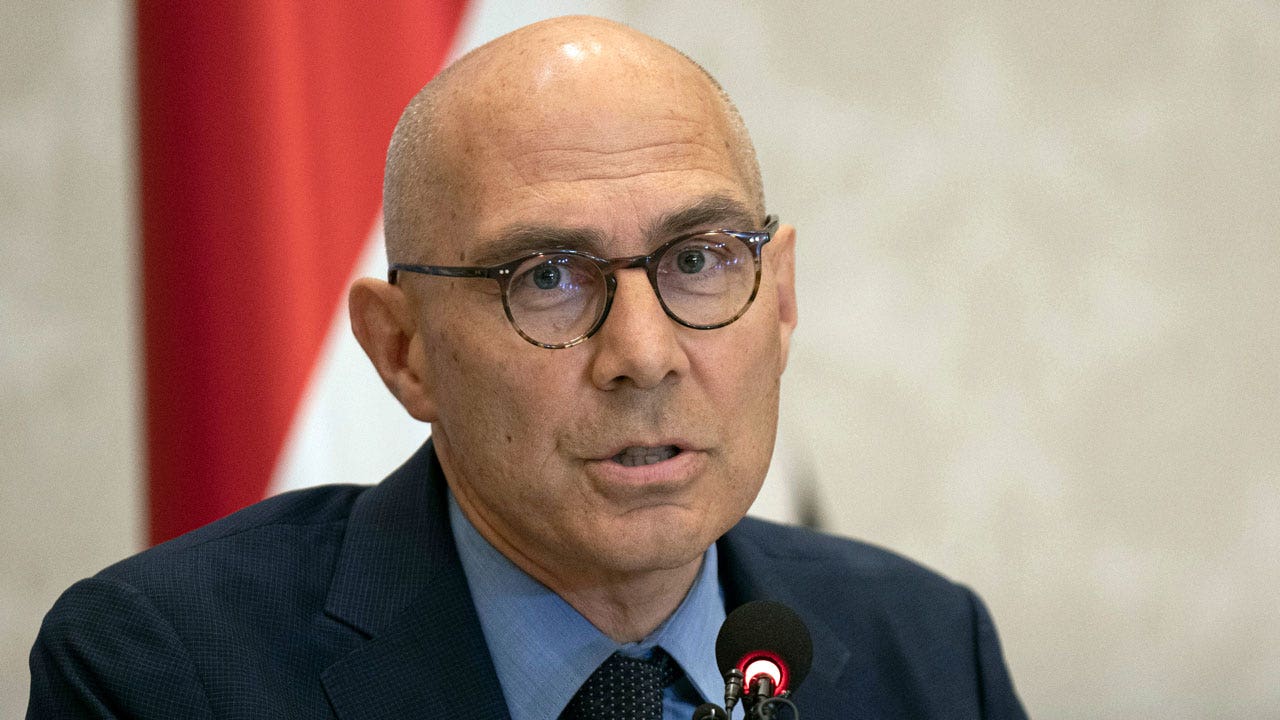
The United Nations called Tuesday for “a clear, transparent and credible investigation” of mass graves uncovered at two major hospitals in war-torn Gaza that were raided by Israeli troops.
Credible investigators must have access to the sites, U.N. spokesman Stephane Dujarric told reporters, and added that more journalists need to be able to work safely in Gaza to report on the facts.
Earlier Tuesday, U.N. human rights chief Volker Türk said he was “horrified” by the destruction of the Shifa medical center in Gaza City and Nasser Hospital in the southern city of Khan Younis as well as the reported discovery of mass graves in and around the facilities after the Israelis left.
PELOSI CALLS ON NETANYAHU TO RESIGN, CONDEMNS HIM AS ‘OBSTACLE’ TO PEACE
He called for independent and transparent investigations into the deaths, saying that “given the prevailing climate of impunity, this should include international investigators.”
“Hospitals are entitled to very special protection under international humanitarian law,” Türk said. “And the intentional killing of civilians, detainees and others who are ‘hors de combat’ (incapable of engaging in combat) is a war crime.”
U.S. State Department spokesman Vedant Patel on Tuesday called the reports of mass graves at the hospitals “incredibly troubling” and said U.S. officials have asked the Israeli government for information.
U.N. High Commissioner for Human Rights, Volker Türk, speaks during a news conference in Baghdad, Iraq, on Aug. 9, 2023. (AP Photo/Hadi Mizban, File)
The Israeli military said its forces exhumed bodies that Palestinians had buried earlier as part of its search for the remains of hostages captured by Hamas during its Oct. 7 attack that triggered the war. The military said bodies were examined in a respectful manner and those not belonging to Israeli hostages were returned to their place.
The Israeli military says it killed or detained hundreds of militants who had taken shelter inside the two hospital complexes, claims that could not be independently verified.
The Palestinian civil defense in the Gaza Strip said Monday that it had uncovered 283 bodies from a temporary burial ground inside the main hospital in Khan Younis that was built when Israeli forces were besieging the facility last month. At the time, people were not able to bury the dead in a cemetery and dug graves in the hospital yard, the group said.
The civil defense said some of the bodies were of people killed during the hospital siege. Others were killed when Israeli forces raided the hospital.
Palestinian health officials say the hospital raids have destroyed Gaza’s health sector as it tries to cope with the mounting toll from over six months of war.
The issue of who could or should conduct an investigation remains in question.
For the United Nations to conduct an investigation, one of its major bodies would have to authorize it, Dujarric said.
“I think it’s not for anyone to prejudge the results or who would do it,” he said. “I think it needs to be an investigation where there is access and there is credibility.”
The chief prosecutor of the International Criminal Court, Karim Khan, said after visiting Israel and the West Bank in December that a probe by the court into possible crimes by Hamas militants and Israeli forces “is a priority for my office.”
The discovery of the graves “is another reason why we need a cease-fire, why we need to see an end to this conflict, why we need to see greater access for humanitarians, for humanitarian goods, greater protection for hospitals” and for the release of Israeli hostages, Dujarric said Monday.
In the Hamas attack that launched the war, militants killed about 1,200 people, mostly civilians, and abducted around 250 hostages. Israel says the militants are still holding around 100 hostages and the remains of more than 30 others.
In response, Israel’s air and ground offensive in Gaza, aimed at eliminating Hamas, has killed more than 34,000 Palestinians, according to local health officials, around two-thirds of them children and women. It has devastated Gaza’s two largest cities, created a humanitarian crisis and led around 80% of the territory’s population to flee to other parts of the besieged coastal enclave.
World
North Macedonia votes in presidential polls as EU membership bid looms
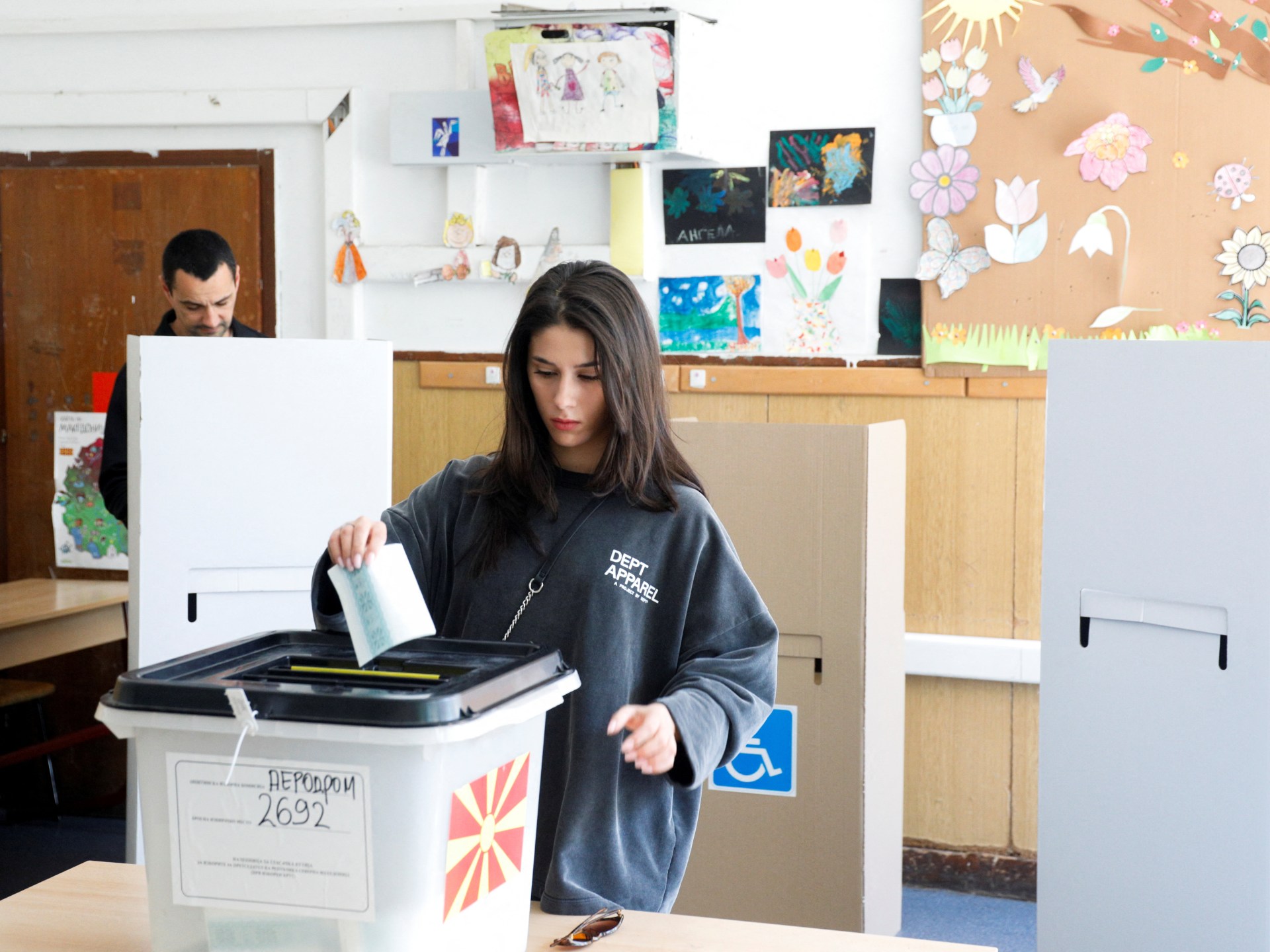
The vote is the first in a series of polls that could decide whether the diverse Balkan country will ever join the EU.
Voting is under way in North Macedonia to elect a president ahead of an upcoming parliamentary election as the Balkan country continues to ponder its European Union membership bid.
The results of Wednesday’s polls are due later in the day, shortly after the polling stations close at 18:00 GMT.
The country has 1.8 million registered voters in a population of 2.3 million, and the turnout must be at least 40 percent for the result to be valid.
The 61-year-old incumbent President Stevo Pendarovski is a candidate of the pro-European Social Democrats running for a second five-year term and is challenged by the 70-year-old Gordana Siljanovska-Davkova from the opposition VMRO DPMNE coalition.
The two offer different views on how to deal with neighbouring Bulgaria’s condition of securing a recognition of a Bulgarian ethnic minority in the constitution of North Macedonia, in exchange for its backing of Skopje’s EU bid.
Pendarovski and the ruling centre-left Social Democrats (SDSM) are prepared to make the amendments but lack the numbers to win a parliamentary vote.
The opposition coalition refuses to budge, saying any constitutional changes can come after North Macedonia joins the EU, a stance the government says is unrealistic.
EU membership talks for the Balkan state began in 2022 as part of a process expected to take years, and its candidacy for the 27-nation bloc dates back to 2005.
The country had already cleared another resistance to its membership bid from Greece in a 2019 move to change its name from Macedonia to North Macedonia. The Balkan state joined NATO in 2020.
Voter Stavre Temelkovski told The Associated Press news agency that he had high expectations that North Macedonia would become a full-fledged EU member soon.
“I expect a civic movement to win, for us to be a part of all those pro-Western systems, and to start a process of healing for a state which has waited for almost three decades,” he said. “Many generations are exhausted.”
Parliamentary vote
The election on Wednesday comes ahead of a parliamentary vote on May 8.
If the presidential vote goes to a second round of voting, a possibility indicated by the results of state-released polls, a run-off vote will also be held on May 8.
The opposition’s Siljanovska-Davkova is expected to take 19.2 percent of the votes and Pendarovski 9.7 percent, according to state television. Foreign Minister Bujar Osmani, a candidate for the DUI party, is forecast to come third with 6.6 percent of votes.
In total, seven candidates are running for the largely ceremonial position after less than a month of campaigning, with discussions also ranging from the rule of law, fighting corruption to reducing poverty.
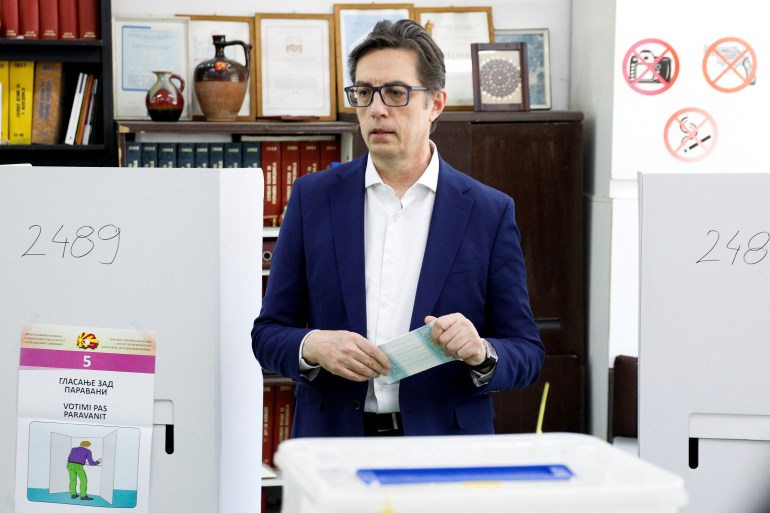
-

 World6 days ago
World6 days agoIf not Ursula, then who? Seven in the wings for Commission top job
-
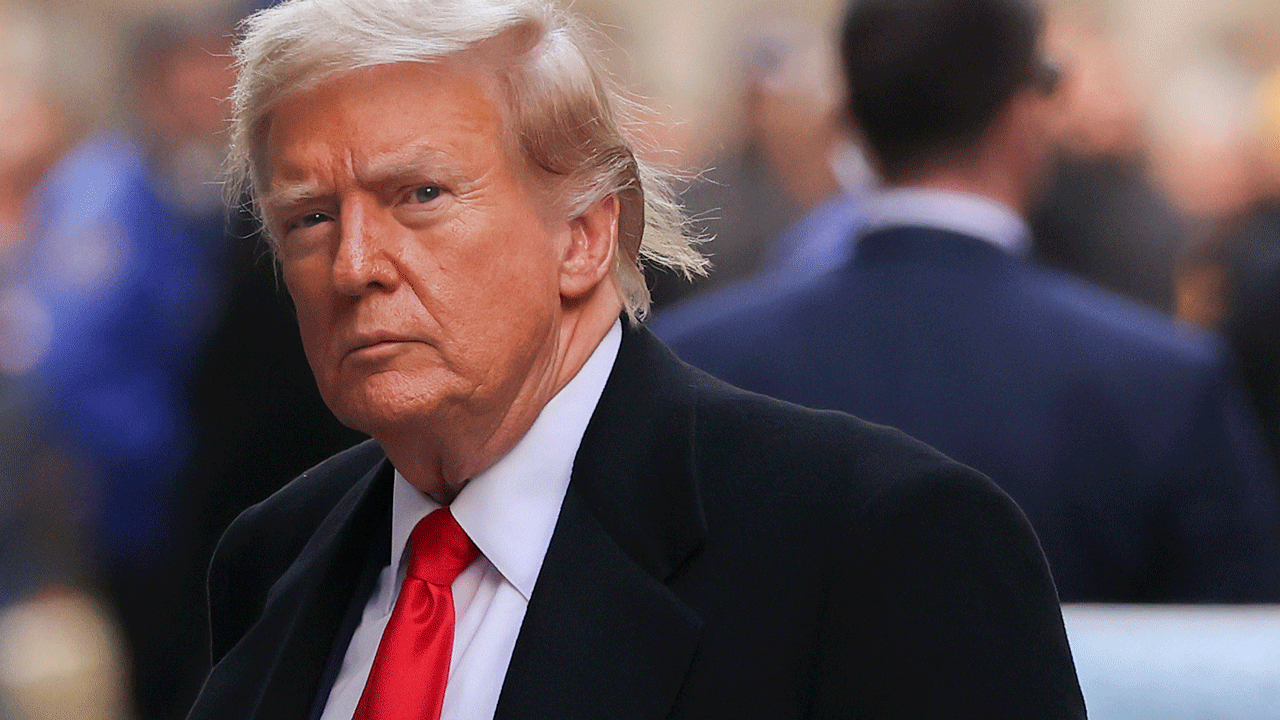
 Politics1 week ago
Politics1 week agoNine questions about the Trump trial, answered
-
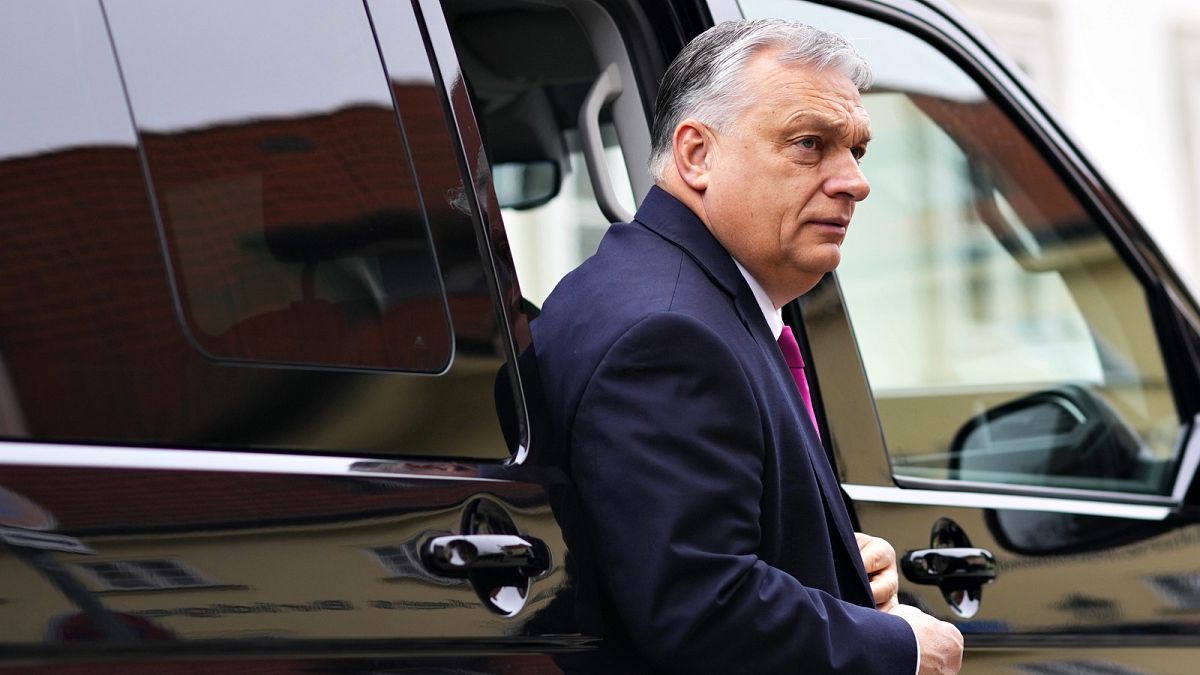
 World1 week ago
World1 week agoHungary won't rule out using veto during EU Council presidency
-

 Movie Reviews1 week ago
Movie Reviews1 week agoFilm Review: Season of Terror (1969) by Koji Wakamatsu
-

 World1 week ago
World1 week agoCroatians vote in election pitting the PM against the country’s president
-
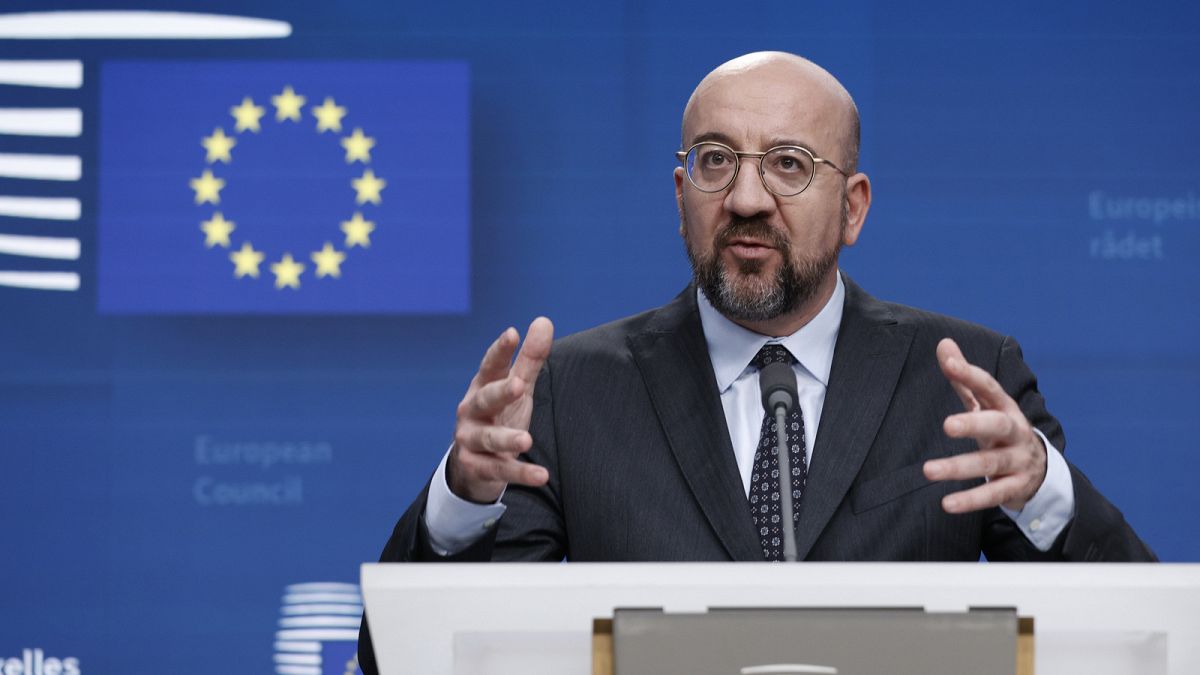
 World1 week ago
World1 week agoGroup of EU states should recognise Palestine together, Michel says
-

 Politics6 days ago
Politics6 days agoTrump trial: Jury selection to resume in New York City for 3rd day in former president's trial
-
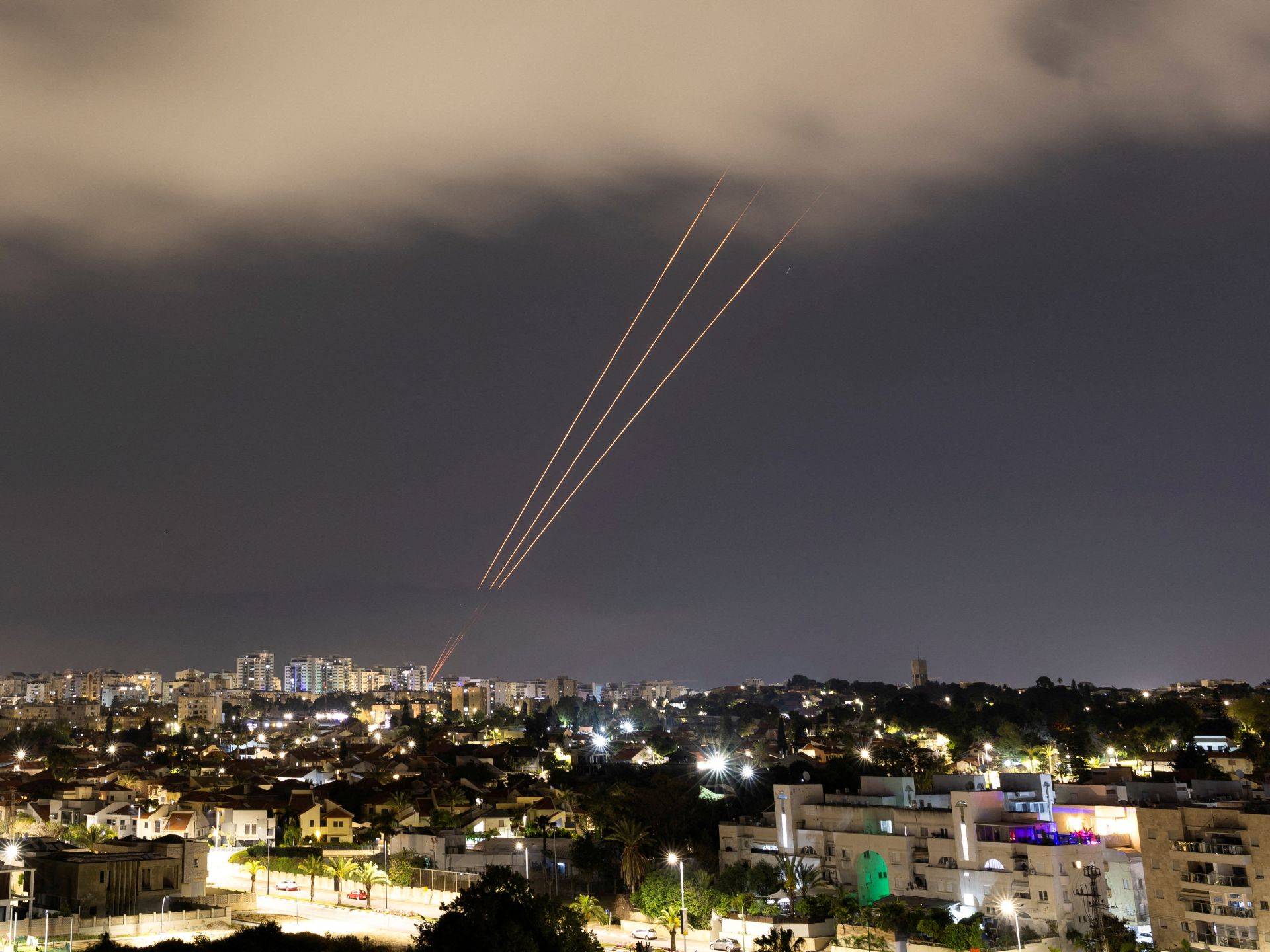
 World1 week ago
World1 week agoThe Take: How Iran’s attack on Israel unfolded




